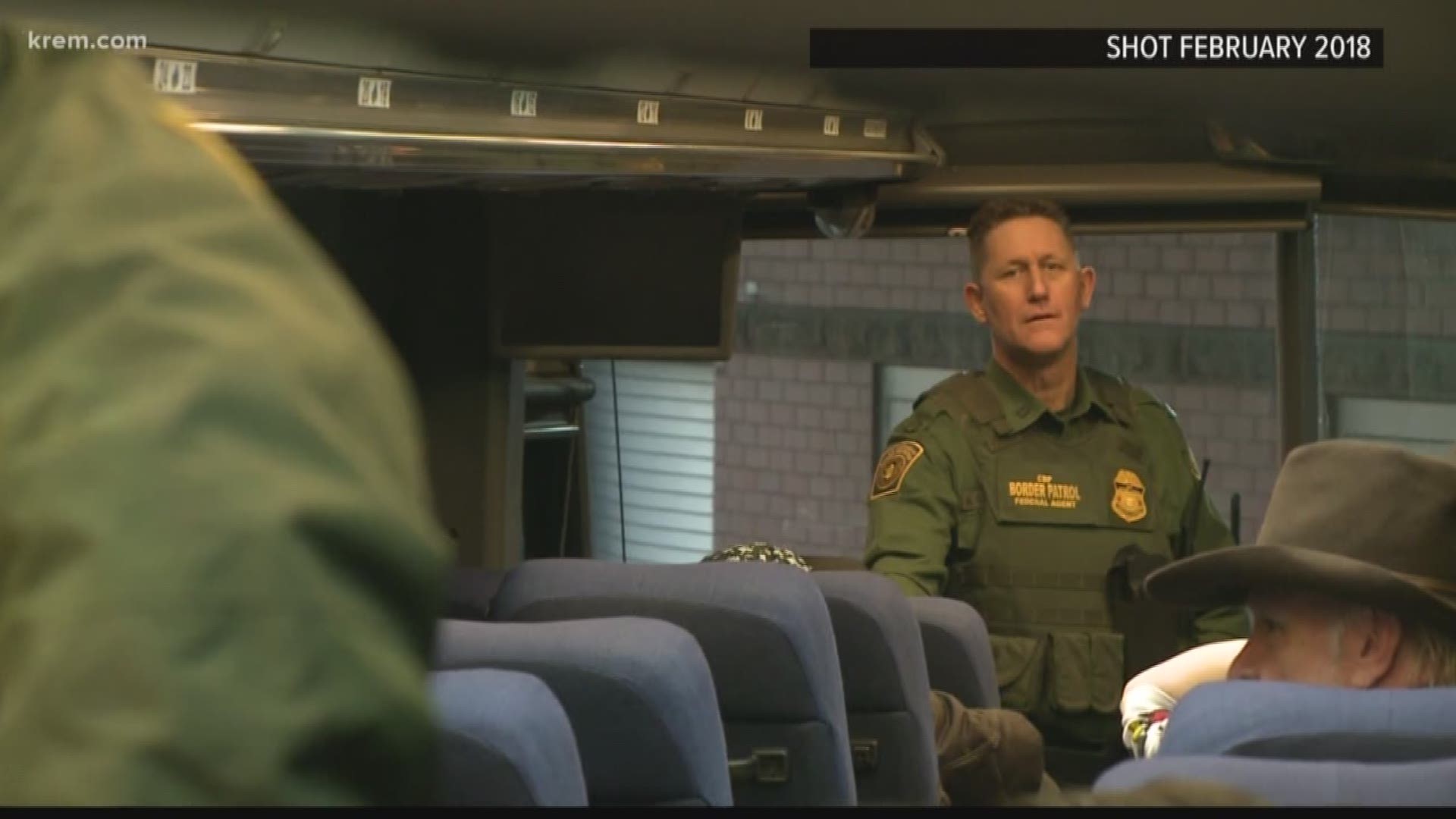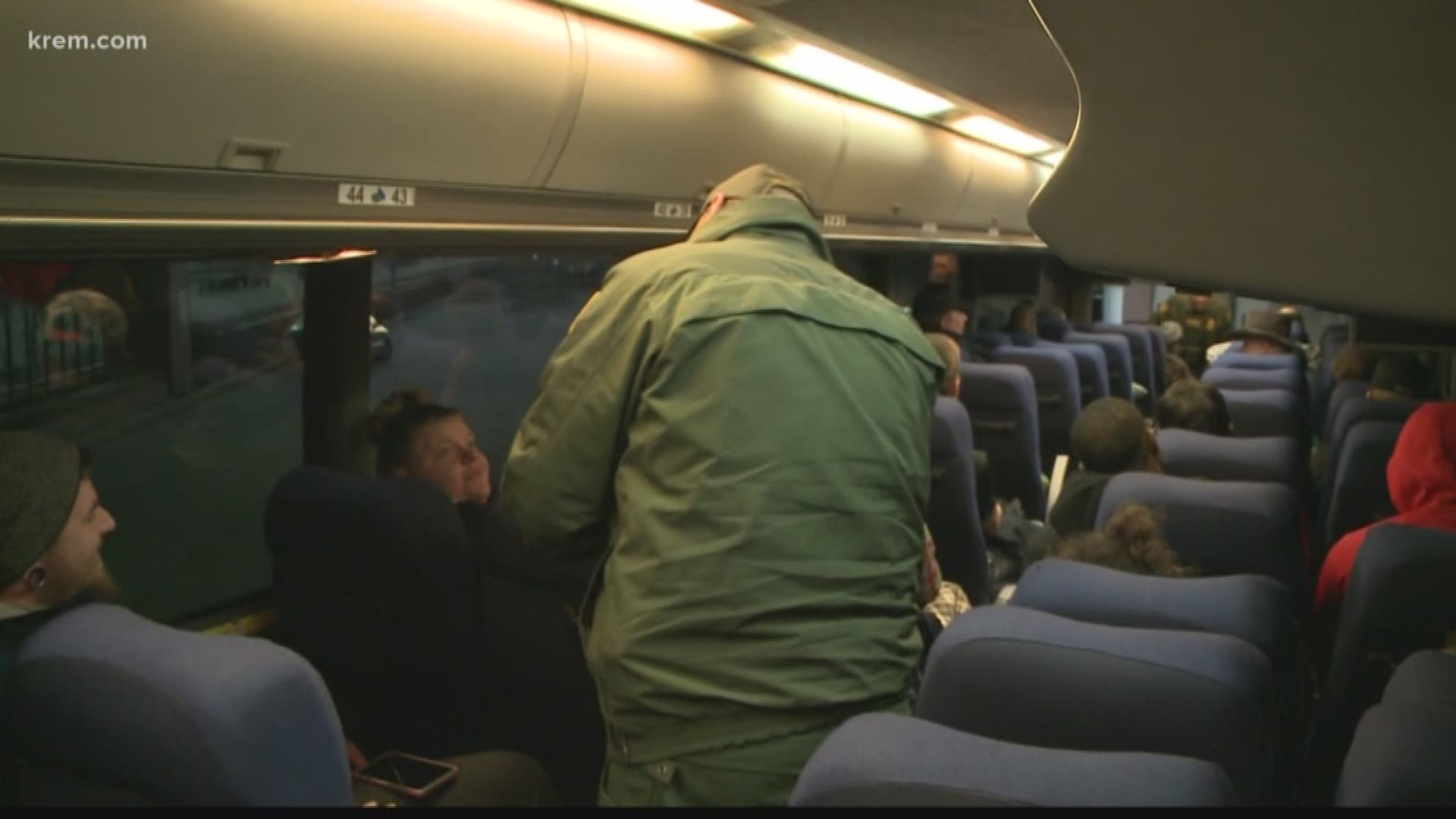SPOKANE, Wash. — Spokane City Council passed an ordinance Monday that declared certain city properties off-limits to immigration officers.
The ordinance was targeted at ending a controversial U.S. Border Patrol practice: Agents frequently boarding Greyhound buses at the Spokane Intermodal Center and asking riders about their citizenship status.
Specifically, it stated that non-public city-owned or operated property and resources cannot be used for immigration enforcement, unless agents obtain a warrant or permission from Spokane Mayor David Condon.
The bus station is leased to Greyhound by the city and is non-public in that it is typically only accessible to ticket-holders and staff. The city also officially declared the station to be non-public in a separate action Monday night.
But Border Patrol said the ordinance has no real effect and that bus checks will continue.
USBP’s Bill Kingsford issued a statement following the ordinance’s passage.
“The way the city ordinance is written will actually not stop us from performing our job at the Spokane Intermodal,” it reads.
“Our operations are status quo right now,” said Border Patrol agent Zach Crosson. “We have the authority to be at the bus station."
That authority comes from federal law, such as the Immigration and Nationality Act, the agents argued.
This law is in fact cited in the city ordinance. It states in part that immigration officers cannot enter non-public areas unless the officer has consent or a warrant. The city’s actions officially deny consent and make the bus station a non-public area.
But the law also provides exceptions. One such exception: Within 100 miles of the border, agents can board vehicles to search for people here illegally, even without a warrant. Spokane is roughly 90 miles from the Canadian border.
"Since the history of the border patrol… we enforce the laws that are on the books that are to be enforced,” Crosson said. “And that’s how it’s always going to be."
Mayor Condon issued a statement Tuesday acknowledging that despite the ordinance, agents can continue to perform bus checks.
“Dozens and dozens of people provided heartfelt testimony about the experiences they’ve had or seen related to federal immigration enforcement in places like Spokane’s Intermodal Center. They have very real concerns,” it read. “Unfortunately, today I have the task of informing those same individuals that the action taken by the Council merely provides a false sense of security for vulnerable individuals rather than a change in the practice of Border Patrol or other federal immigration agents.”
Breann Beggs, the city councilman who led the charge for the ordinance, argued the searches still constitute a violation of the Fourth Amendment. He responded to Border Patrol’s announcement that the checks will continue.
“Well, I wasn't surprised,” he said. “They don’t always follow the constitution.”
Both Beggs and Crosson argued recent Supreme Court decisions in support of their case. But unless – and until – these searches end up in court, we will not have a final legal decision.
Meanwhile, checks will continue. Crosson said they try to do a check every day, as manpower allows. The checks usually result in around 30 apprehensions per year, he said. Since February, 17 people from at least 10 different countries have been arrested as a result of the searches.
The ordinance does state that City of Spokane officials, including police, should not permit immigration officers onto the aforementioned properties. But Beggs said there will not be any sort of standoff between local police and federal agents.
“We specifically made it clear that we're not asking our police to interfere with the border patrol," he said.
He also said the city will not take any specific further legal action. Instead, he hopes the ordinance will be helpful in court to anyone who gets arrested at the Intermodal during these checks.
"It does give them legal standing,” Beggs said. “And makes it clear that it's a privately run business area, and there was no consent, which is what normally would be the defense of the border patrol. And those defenses are now gone."
"We wanted to make sure that no one could say we were just letting them by being silent,” he said. “We wanted to be affirmative, and say no you have to follow the constitution, and all travelers in Spokane are welcome and are protected by the constitution."
Although the Border Patrol could still comply with the ordinance by waiting until buses left the station and then pulling them over, Crosson said that would cause unnecessary delays for travelers, whereas the current checks happen at a time when the bus isn’t going anywhere anyway.
The searches have drawn such controversy in part because of accusations of Fourth Amendment privacy violations, and in part because of accusations that they have a tendency towards racial profiling. This has become especially controversial as immigration-related rhetoric has heated up nationally.
But Crosson said that rhetoric is often unfair to border agents.
“You get people out here claiming that we're shaking people down for their papers, calling us the Gestapo and everything else,” he said. “It's nothing further from the truth. Out here racially profiling… nothing further from the truth."
“Everything that happens on that bus is on the up and up. We're not concerned with race, we're concerned with nationality,” Crosson added.
The ordinance was passed 6-1 at a council meeting Monday night. Council members heard hours of testimony from those supporting and opposing the ordinance. Council member Mike Fagan was the only person who did not support the ordinance.


